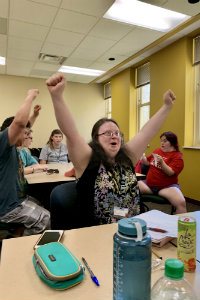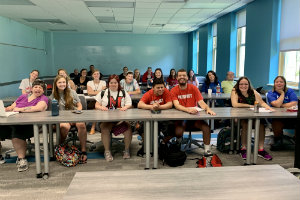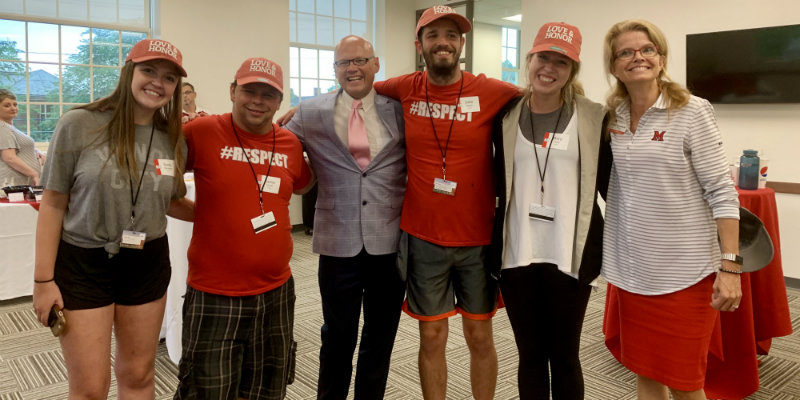New Name, New Focus for One of the Most Inclusive and Accessible Programs at Miami


James M. Loy, Miami University
Every summer, Miami students, alumni, and individuals with disabilities come together for one of the university’s most inclusive and accessible programs.
Made possible, in part, by a recent Giving Circle grant from M.I.A.M.I. WOMEN, the Inclusive University Program invites college students, often those majoring in special education, to co-learn alongside with individuals with disabilities, who gain access to higher education during an immersive week-long experience.

Now in its fifth year, the Inclusive University Program has become known for its contributions toward building a more inclusive campus, community, and culture. And as a way for individuals with disabilities to learn how to advocate for themselves, and for others.
But soon, this program will also be known by a new name: The Access Miami Program.
“Every year we review, “What is disability studies?” said Ashley Johnson, Miami clinical faculty in inclusive special education. “But this year’s content focus was this transition from inclusion to access, and expanding our ideas of access. And part of access is working together in partnership. So we wanted the students in the program to have their voice to say, ‘This is what we want the program to look like moving forward.’”
And along with the new name also comes a new slogan, which was inspired by the #accessislove movement originally created by Alice Wong, Mia Mingus, and Sandy Ho.

“Access is Love and Honor,” said Sarah Marsh, a sophomore special education major. “We love our slogan. It’s really going toward access as our North Star. So looking at the program in the future of what access on Miami’s campus looks like.”
While inclusion has been the goal for years, this emphasis on access represents another step in the continuum.
Rather than people without disabilities inviting, or including, people with disabilities into their social circles. The ultimate ideal would, instead, be to co-create entirely new circles, where both people with disabilities and people without disabilities exist and thrive together across all aspects of society.
“This is just as much your place as it is ours,” the students said during their final presentation.
Also present during this year’s program were several Miami alumni who took time away from their full teaching positions to oversee a variety of activities.
“This year we have four students who have graduated,” said Johnson. “This is their fifth summer participating in the program. They're beyond dedicated to this group of students, and to creating access for them. So there's a lot of mentoring going on, with our students with disabilities, and with our Miami students.”
Rachel Cacchione, a special education teacher for the Gurnee School District in Chicago, was among the alumni in attendance.
“I look forward to it every year,” Cacchione said. “I love seeing everybody else enjoy campus as much as I do, and get those the same opportunities that I had when I went to Miami. It makes me honestly more proud to be an alumni because we are working towards access, and a truly accessible and inclusive campus.”


